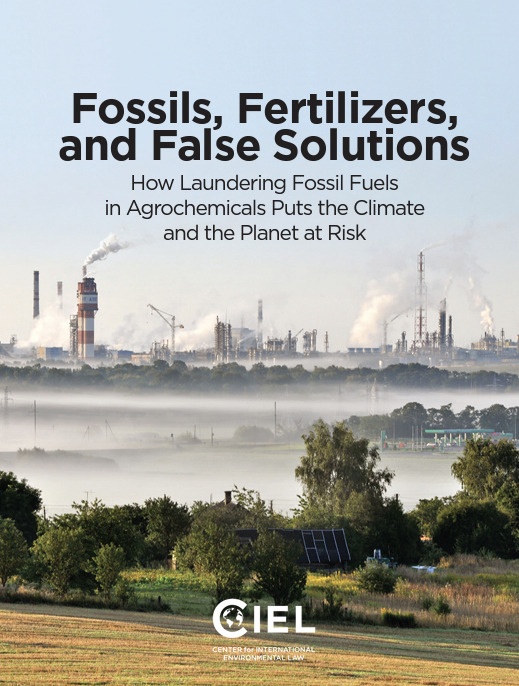
Fertilizers and pesticides are interdependent inputs to a destructive food production model that is contributing to catastrophic biodiversity collapse, toxic pollution, and the violation of human rights. But there is an often-overlooked dimension of the threat posed by these agrochemicals: their fossil fuel origins. Synthetic nitrogen fertilizer and pesticides are fossil fuels in another form, making them an underrecognized but significant driver of the climate crisis. Further, the close ties between agrochemicals and fossil fuels mean that industrial food production is vulnerable to the volatility inherent in oil and gas markets, as starkly illustrated by the 2022 market shocks in food, fuel, and fertilizer prices.
For over a decade, the fossil fuel industry has been betting on petrochemicals (namely, plastics) to maintain profits as the world moves away from oil and gas as fuels. Fossils, Fertilizers, and False Solutions exposes how fossil fuel and fossil fertilizer companies are aligning to pursue a new escape hatch: one that purports to solve the climate challenge of hydrocarbon combustion by using the hydrogen and managing the carbon.
The fertilizer industry, and the processes it already uses to make its products, hold the keys to this new model. Largely unnoticed by media and civil society watchdogs, oil, gas, and agrochemical companies are partnering on a rapidly growing wave of new projects that would use carbon capture and storage (CCS) to produce fossil gas-based “blue” ammonia (and its “blue” hydrogen precursor), not only as a critical fertilizer input, but as a combustible fuel for transport and energy. Through such approaches, the fertilizer and fossil fuel companies seek to greenwash their polluting business, cash in on generous new subsidies for CCS, and access new markets as “clean energy companies.”
This report begins by summarizing synthetic fertilizer market trends, describing how chemical fertilizer is tied to fossil fuels through feedstocks, examining the 2022 food and fertilizer market disruptions, and calling attention to the ecological and climate impacts of synthetic fertilizers. It then explores how the fertilizer industry and fossil fuel producers are capitalizing on the climate crisis to open new avenues for profit and production by laundering their emissions through the chemicals and agriculture sector.
The corporate-controlled, input-reliant model of industrial agriculture is in need of a profound transformation to resilient, regenerative models that enhance food and energy sovereignty so that the ecosystems and communities that depend on them can thrive. The need for such a fundamental transformation is as urgent and as compelling as the global energy transition, the transition away from plastic pollution, and the transition to a world free of toxic chemicals. Those transitions can only be achieved if the common roadblock is removed: a fossil-fueled system that has captured politics and is burning, polluting, and poisoning people and the planet. At a time of surging fossil fuel, fertilizer, and food prices, and with the escalating climate crisis as a backdrop, the case for transitioning away from fossil fertilizer and from fossil fuels altogether has never been clearer.
Read the report.
Read the executive summary in English and in German.
Watch the short explanatory video.
Published on October 6th, 2022
